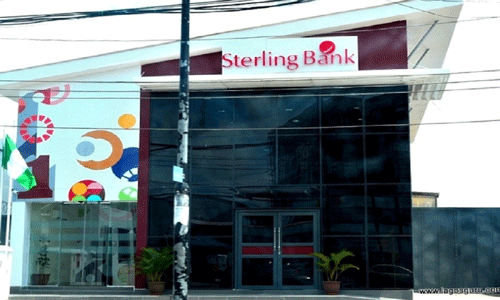Sterling Bank has pledged more than ₦2 billion to fully fund university education for 600 young Nigerians across the country.
The initiative, known as Beyond Education, was announced on Democracy Day and aims to remove the financial obstacles stopping many Nigerians from getting quality higher education.
This major education investment will support students to study key disciplines like Technology, Finance, Sales, and Public Health.
It is one of the largest single private sector educational contributions to any Nigerian university and strengthens Sterling Bank’s commitment to national development.
Beyond Access: Education as a Gateway to the Future
Sterling Bank’s CEO, Abubakar Suleiman, explained the vision behind the program. He said, “Progress is not a spectator sport. While others talk about Nigeria’s potential, we are actively investing in it.”
He added, “These scholarships are direct investments in the architects of our future. We are funding the education of future leaders who will build the companies, systems, institutions, and solutions Nigeria needs to thrive.”
The program is designed to be inclusive and accessible. Young people from all 36 states and the Federal Capital Territory can apply. Candidates can nominate themselves or be nominated by others. Final selection will be based on a public voting system open to Sterling Bank account holders.
Obinna Ukachukwu, who leads the Retail & Consumer Banking Directorate at Sterling, said, “This initiative goes beyond access to education, it’s access to a future. Education remains the most valuable asset anyone can have, and we’re proud to stand behind young Nigerians as they claim it.”
Partnering with Miva University to Drive Innovation
The Beyond Education initiative is being launched in partnership with Miva University. Miva was founded by well-known tech entrepreneur Sim Shagaya and is accredited by the National Universities Commission.
Miva offers affordable and flexible programs tailored to the digital economy. It focuses on building the skills students need to thrive in modern workplaces. This collaboration supports Sterling’s mission to grow long-term national capacity, not just short-term aid.
Sterling has also invested over ₦500 billion across key sectors in Nigeria. These include Healthcare, Education, Agriculture, Renewable Energy, and Transportation—areas grouped under the HEART strategy.
The bank is not new to social investment. From digitised healthcare and school financing to agricultural cooperatives, solar energy, and low-cost transport, Sterling is working to build inclusive systems that improve life for Nigerians.
Suleiman said, “We’re moving beyond charity. This is about building systems that last and it is much bigger than hundreds of scholarships. It’s about the future those brilliant young minds will build for our country.”
Private Sector Commitment to Youth Empowerment
Nominations for the scholarship are now open. Interested candidates can visit the official Sterling website to apply or nominate someone. The bank hopes the Beyond Education initiative will inspire other private sector organisations to think differently about impact and investment.
Sterling Bank continues to be recognised for its ethical and people-focused approach. From its OneBank platform that removed transfer fees to its work enabling access to capital for underserved groups, the bank leads with purpose.
Through the HEART sectors, Sterling is not only financing services but building opportunity, dignity, and mobility for millions across Nigeria.
Rate, Like 👍, Comment, share this article and Follow us on our social media handles.







